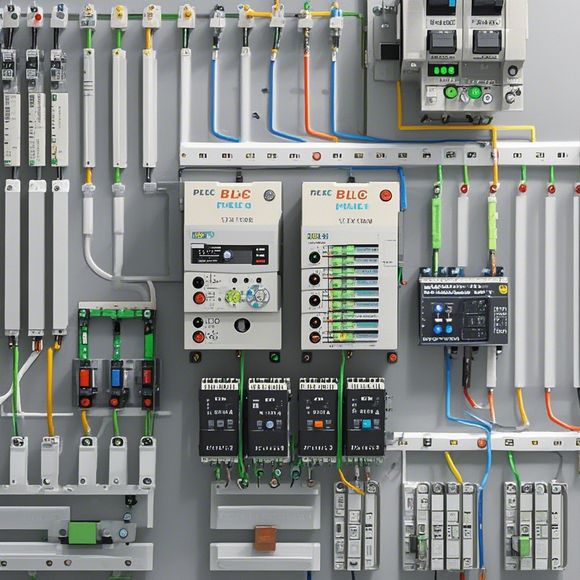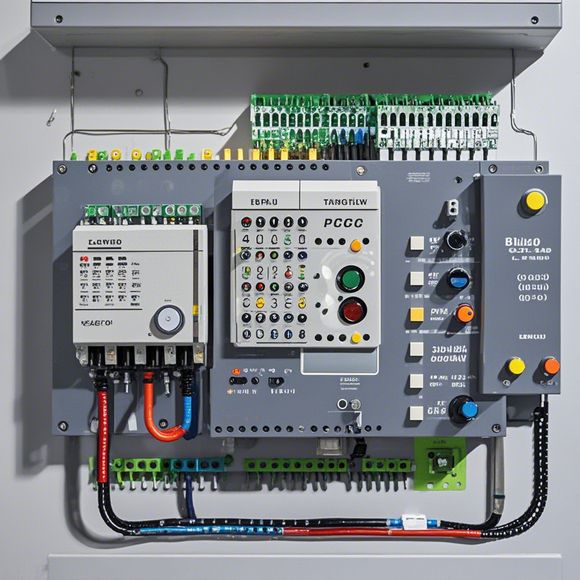PLC (Programmable Logic Controller) - The Backbone of Industrial Automation
PLC, also known as Programmable Logic Controller, plays a crucial role in modern industrial automation. It's the backbone of various industrial processes and systems, allowing for precise and efficient control over machinery, equipment, and production lines. With its ability to program and automate complex tasks, PLCs have become an indispensable tool for businesses looking to streamline their operations and improve productivity. Whether it's controlling temperature, monitoring sensor data, or managing inventory levels, PLCs are the perfect solution for achieving these goals. In addition to their functionality, PLCs are also highly cost-effective. They offer a wide range of features at competitive prices, making them an ideal choice for both small and large businesses. With their advanced capabilities and reliability, PLCs are set to continue playing a vital role in the future of industrial automation.
Introducing the world of industrial automation, where PLC (Programmable Logic Controller) stands as the backbone of operations. At the heart of this revolution lies a device that has transformed manufacturing and industrial processes across the globe. This is your PLC controller – a marvel that seamlessly manages and coordinates complex systems in real-time, allowing for precise control over production lines, machinery, and even entire factories. But how does it work? What makes it so crucial in today's world? Let's dive into the intricacies of PLCs, their significance, and how they power the success of modern industries.
PLCs are digital computers that can be programmed to perform specific tasks based on inputs from sensors, switches, or other input devices. They work by interpreting commands and instructions provided through a series of programming languages such as Ladder Diagrams (LD), Function Block Diagrams (FBD), or Structured Text (ST). These commands are then translated into actual actions by the PLC hardware, which executes them with precision and reliability. Whether it's monitoring temperature in a factory or adjusting the speed of a conveyor belt, PLCs have become the silent partners in every manufacturing process.
But let's not just focus on what PLCs do; we'll also talk about the benefits they bring to businesses. Firstly, efficiency is at the core of any successful business model. By using PLCs, companies can optimize their operations, reducing waste and increasing productivity. For example, imagine a food processor that uses an PLC system to precisely control the mixing of ingredients before they are packaged. With precise measurements and automated adjustments, there's no room for human error, ensuring consistent quality and saving time.

Another advantage of PLCs is flexibility. They can be customized to meet the unique needs of various industries, whether it's heavy machinery in mining or delicate electronics in the tech sector. The ability to adapt to changing conditions without redesigning the entire system is a game-changer. Consider a textile mill that switches to an PLC-driven system to streamline its supply chain, ensuring faster delivery times and reduced costs.
Safety should also be a top priority when considering the use of PLCs in industrial environments. Thanks to their advanced diagnostics and self-healing capabilities, these controllers can detect and respond to potential faults quickly. This means fewer downtime, reduced risk of accidents, and peace of mind for both employees and stakeholders alike.

Lastly, the integration of PLCs with cloud technology opens up new possibilities for remote monitoring and control. With the ability to access data and make changes from anywhere in the world, companies can maintain agility and stay ahead of industry trends. For instance, a car manufacturing company could monitor its assembly line using an PLC system integrated with a cloud service, enabling real-time adjustments for better quality assurance.
In conclusion, PLCs represent more than just a tool; they represent a paradigm shift in the way industries operate. By leveraging their precision, flexibility, safety features, and integration capabilities, companies are able to achieve unprecedented levels of efficiency and innovation. So the next time you see those sleek black boxes under the hood of a machine, take a moment to appreciate their role in shaping the future of manufacturing. After all, it was once thought that PLCs were just a gadget used by engineers; now, they're the backbone of a thriving global industry.

Content expansion reading:
Articles related to the knowledge points of this article:
How to Use a PLC Controller for Your Business
Connecting a PLC Controller to Your Computer
Effective Strategies for Handling PLC Control System Faults
What is a Programmable Logic Controller (PLC)
PLC Controller Advantages: A Comprehensive Guide for Success in Global Trade
Mastering the Art of PLC Control: Unlocking Industry-Grade Automation Powerhouses